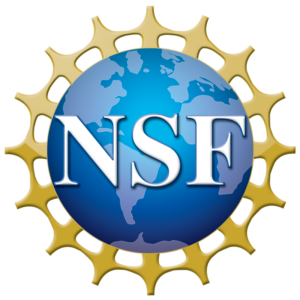Virtual Experience Research Accelerator (VERA)

Supported by five collaborative grants from the U.S. National Science Foundation, the Virtual Experience Research Accelerator (VERA) project is developing a human-machine system for carrying out human subjects research related to extended reality (XR), including Virtual Reality and Augmented Reality, for the XR researcher community. It seeks to achieve unprecedented scale, speed, and control over experiments. The project also seeks to foster a broad and collaborative community of XR researchers to increase the opportunities for research partnerships and professional growth.
Mission
To serve the community of XR researchers by providing tools to accelerate and improve the quality of their human subjects research, building and sustaining a broad and collaborative community of XR researchers, fostering the development of the current and next generation of XR researchers.
News
(2025 news coming)
Past news
Leadership
Principal Investigators
-
- Greg WELCH (Lead PI), University of Central Florida
- Shiri AZENKOT, Cornell Tech / XR Access
- Jeremy BAILENSON (Director of Community Outreach), Stanford University
- Gerd BRUDER, University of Central Florida
- John MURRAY, (Director of Software Engineering), University of Central Florida
- Tabitha PECK, Davidson College
- Valerie Jones TAYLOR, Rutgers University
Investigators
-
- Jonathan BEEVER (Ethics and Privacy), University of Central Florida
- Nicholas Alvaro COLES (Big Team Science), University of Florida
- Carolina Cruz-NEIRA (Partnerships, Sustainability), University of Central Florida
- Rui XIE (Statistics and Data Science), University of Central Florida
Development and Operations
-
- Ali HASKINS LISLE, Director of Development and Operations, University of Central Florida
- John MURRAY, Director of Software Engineering, University of Central Florida
- Chloe BEATO, Development Project Manager, University of Central Florida
- Dylan FOX, XR Access Director of Operations, Cornell Tech / XR Access
- Jaz DEGUZMAN, Pre-Release Experiment Coordinator, University of Central Florida
- Matthew GOTTSACKER, Business Development Coordinator, University of Central Florida
Software Engineering Team
- Erik Larson
- Corey CLEMENTS, Associate Lead Software Engineer
- Zubin CHOUDHARY, Developer
- Hiroshi FURUYA, Developer
Additional Support
- Ryan SCHUBERT, Special Projects Coordinator, University of Central Florida
Collaborators
External Advisors
-
- Anthony STEED, Senior Technical Advisor, University College London
Student Teams
-
- UCF 2023–2024 Computer Science Senior Design Team, "VERA Locomotion Accessibility Toolkit"
- Team: Parsa Baghaie, Corey Clements, Josh Federmann, Adam Lei, Christian Merino, and Oliver Wacker
- Advisors: Greg Welch and Dylan Fox
- UCF 2023–2024 Computer Science Senior Design Team, "VERA Locomotion Accessibility Toolkit"
Community Committees
Outreach and Engagement Committee
Chaired by Jeremy Bailenson, focuses on community involvement and building/growing a broad, collaborative, and vibrant community of XR researchers.
Ethics and Privacy Committee
Chaired by Jonathan Beever, focuses on potential ethical concerns related to engagement, research participation and data reuse, and platform design.
Participant and Researcher Committee
Chaired by Valerie Jones Taylor, Tabitha Peck, and Dylan Fox focuses on all matters related to the Participant Pool and the Researchers who use VERA, including user experience, access, financial matters, Institutional Review Boards (IRB) matters, and experiments including vulnerable populations such as children or the elderly.
Systems and Operations Committee
Chaired by Gerd Bruder and John Murray, focuses on development and operations of VERA systems, services, and tools.
Community Advisory Board
The VERA Community Advisory Board (CAB) provides strategic perspectives, critical thinking, and specific advice to the entire VERA organization.
Resources
- VERA mail lists
- VERA on LinkedIn
- VERA on Twitter (X)
Public Planning Activities (2021–2022)
07 MAR 2025
![]()
This material is based upon work supported primarily by the National Science Foundation under Grant Number 2235066.
Any opinions, findings, and conclusions or recommendations expressed in this material are those of the author(s) and do not necessarily reflect the views of the National Science Foundation.


